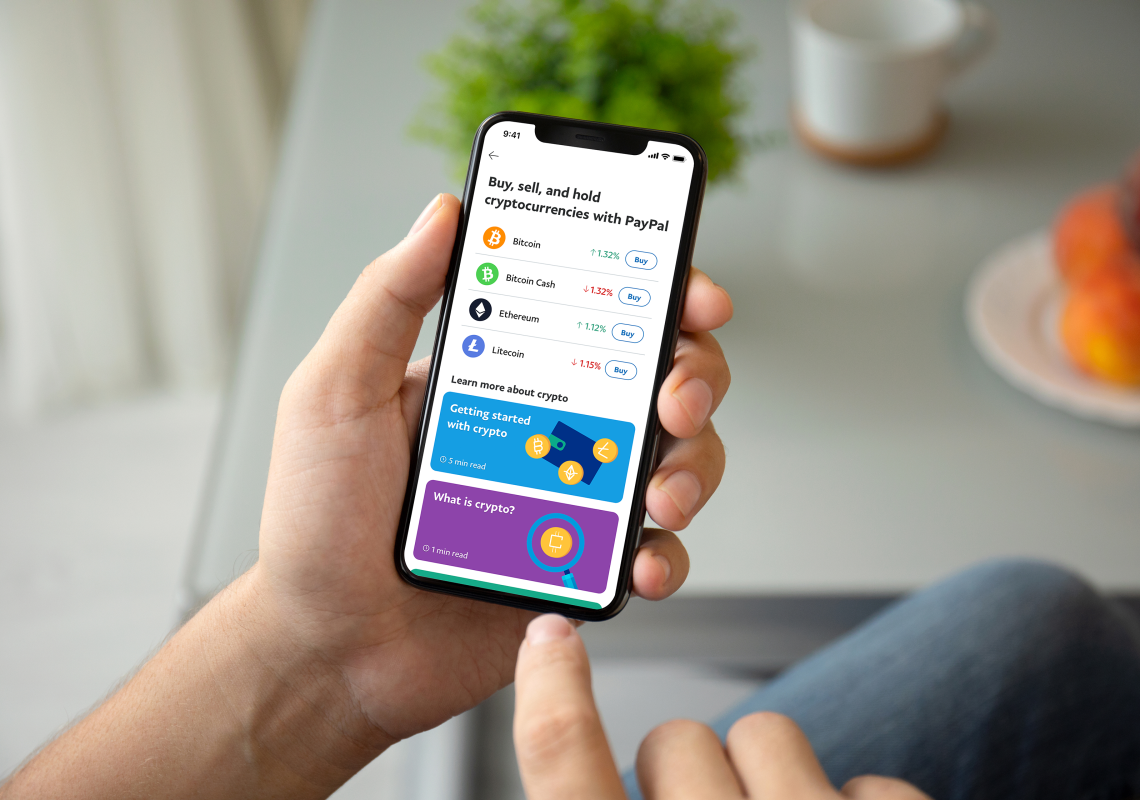Overview
What is peer to peer trading?
Peer to peer trading, also known as P2P trading, is a decentralized form of trading where buyers and sellers interact directly with each other without the need for intermediaries such as banks or brokers. In P2P trading, individuals can trade various assets, such as cryptocurrencies, stocks, or even physical goods, directly with one another using online platforms or marketplaces. This form of trading offers several advantages, including lower fees, faster transactions, and increased privacy. Additionally, P2P trading allows individuals to have more control over their trades and eliminates the reliance on centralized authorities. Overall, peer to peer trading provides a convenient and efficient way for individuals to engage in direct transactions and exchange assets without the need for traditional intermediaries.
Table of Contents
Advantages of peer to peer trading
Peer to peer trading offers several advantages over traditional methods of trading. One of the main advantages is the elimination of intermediaries, such as banks or brokers, which can reduce transaction costs and increase efficiency. Additionally, peer to peer trading allows for direct communication and negotiation between buyers and sellers, providing more transparency and control over the trading process. Another advantage is the potential for lower fees, as peer to peer platforms often have lower overhead costs compared to traditional trading platforms. Lastly, peer to peer trading can offer a wider range of trading options and opportunities, as it allows individuals from different locations and backgrounds to connect and trade directly with each other. Overall, peer to peer trading provides a decentralized and user-centric approach to trading, offering numerous benefits to both buyers and sellers.
Disadvantages of peer to peer trading
Peer to peer trading, while offering numerous advantages, also comes with its fair share of disadvantages. One of the main drawbacks is the lack of regulation and oversight. Unlike traditional trading platforms, peer to peer trading operates on a decentralized network, which means there is no central authority to enforce rules and protect users. This can leave traders vulnerable to scams, fraud, and other malicious activities. Additionally, peer to peer trading may lack liquidity compared to centralized exchanges, making it more difficult to buy or sell assets at desired prices. Lastly, the anonymity of peer to peer trading can be a double-edged sword. While it provides privacy and security, it also opens the door for illegal activities and money laundering. Overall, it is important for traders to be aware of these disadvantages and take necessary precautions when engaging in peer to peer trading.
How does peer to peer trading work?
Finding a peer to trade with
Finding a peer to trade with in the world of peer-to-peer trading can be an exciting and rewarding experience. There are several methods you can use to connect with potential trading partners. One popular method is to join online trading communities or forums where traders gather to share information and connect with each other. Another option is to use peer-to-peer trading platforms that match buyers and sellers based on their preferences and trading history. Additionally, social media platforms can also be a great way to find peers to trade with, as many traders use platforms like Twitter or Telegram to connect with others in the trading community. No matter which method you choose, it’s important to do your research and ensure you are trading with reputable individuals to minimize the risk of fraud or scams. Happy trading!
Negotiating the terms of the trade
When it comes to peer-to-peer trading, negotiating the terms of the trade is a crucial step. This is where both parties involved in the trade discuss and agree upon various aspects such as the price, quantity, quality, and delivery method of the goods or services being exchanged. Effective negotiation skills are essential in order to reach a mutually beneficial agreement. It is important to clearly communicate your preferences and requirements while also being open to compromise. By engaging in a fair and transparent negotiation process, both parties can ensure a successful and satisfactory trade outcome.
Executing the trade
Peer to peer trading allows individuals to trade directly with each other without the need for intermediaries such as brokers or exchanges. Executing the trade in peer to peer trading involves the following steps: first, both parties agree on the terms of the trade, including the price, quantity, and any additional conditions. Once the terms are agreed upon, the buyer sends a trade request to the seller, indicating their intention to buy the specified asset. The seller then reviews the request and can either accept, reject, or negotiate the terms. If the terms are accepted, the buyer sends the payment to the seller, either through a secure payment platform or by meeting in person. Once the payment is received, the seller transfers the asset to the buyer, completing the trade. This process allows for direct and efficient trading between individuals, while also providing transparency and security through the use of smart contracts and escrow services.
Recommneded Bitcoin now accepted in 1,628 stores owned by Pick n Pay in South Africa
Tips for successful peer to peer trading
1. Research the market
Researching the market is a crucial step in peer-to-peer trading. It involves gathering information about the current trends, prices, and demand for the specific asset or product you are interested in. By conducting thorough research, you can identify potential opportunities and make informed decisions when engaging in peer-to-peer trading. This process may include analyzing historical data, monitoring market fluctuations, and staying updated with relevant news and events. Additionally, researching the market allows you to assess the potential risks and rewards associated with peer-to-peer trading, helping you to mitigate any potential losses and maximize your profits.
2. Establish trust with your trading partner
To establish trust with your trading partner in peer-to-peer trading, it is important to take certain steps. Firstly, communicate openly and clearly with your partner about your expectations, preferences, and any concerns you may have. This will help set the foundation for a transparent and mutually beneficial trading relationship. Secondly, conduct thorough research on your trading partner, including their reputation, history, and feedback from previous trades. This will give you a better understanding of their reliability and trustworthiness. Additionally, consider using an escrow service or a trusted third-party platform to facilitate the trading process and provide an extra layer of security. By taking these precautions, you can minimize the risks associated with peer-to-peer trading and establish a strong foundation of trust with your trading partner.
3. Set clear expectations
When engaging in peer-to-peer trading, it is crucial to set clear expectations with your trading partner. Clearly communicate your preferences, requirements, and any specific conditions that need to be met. This will help to ensure a smooth and successful trading experience for both parties involved. By setting clear expectations from the outset, you can avoid misunderstandings and potential conflicts, and increase the likelihood of a mutually beneficial trade. Remember to be transparent and honest about your intentions and any limitations you may have. Open and effective communication is key to building trust and fostering a positive trading relationship.
Popular platforms for peer to peer trading
LocalBitcoins

LocalBitcoins is a popular peer-to-peer trading platform that allows users to buy and sell Bitcoin directly with each other. It provides a secure and convenient way to trade Bitcoin without the need for a centralized exchange. Users can create advertisements to buy or sell Bitcoin, specifying their preferred payment methods and exchange rates. LocalBitcoins acts as an escrow service, holding the Bitcoin in a secure wallet until the trade is completed. This platform also offers a reputation system, allowing users to build trust and establish a good trading history. With LocalBitcoins, users have the flexibility to trade Bitcoin with people in their local area or from around the world, making it a versatile and inclusive platform for peer-to-peer trading.
Paxful

Paxful is a leading peer-to-peer cryptocurrency marketplace that allows users to buy and sell Bitcoin directly with each other. The platform provides a secure and easy-to-use environment for individuals to trade cryptocurrencies without the need for a centralized exchange. With Paxful, users can choose from a wide range of payment methods, including bank transfers, gift cards, and online wallets, making it convenient for users around the world to participate in the global cryptocurrency market. The platform also offers a robust dispute resolution system and escrow service to ensure the safety of transactions. Whether you are a beginner or an experienced trader, Paxful provides a reliable and efficient platform for peer-to-peer trading.
Recommneded: Why did Paxful Bitcoin Marketplace Shutdown its Operations?
Bisq

Bisq is a decentralized peer-to-peer trading platform that allows users to buy and sell cryptocurrencies directly with each other. Unlike traditional centralized exchanges, Bisq does not hold users’ funds or require them to create an account. Instead, it uses a decentralized arbitration system to ensure fair and secure trades. Users can trade a wide variety of cryptocurrencies, including Bitcoin, Ethereum, and Litecoin, using a range of payment methods. With its focus on privacy and security, Bisq provides a trustworthy and user-friendly platform for peer-to-peer trading.
Recommended: Will Bitcoin ever replace the US dollar? Here is What We Know
Risks and precautions in peer to peer trading
Scams and fraud
Peer to peer trading platforms have become increasingly popular in recent years, providing individuals with a convenient and efficient way to buy and sell goods and services directly with one another. However, along with the benefits of peer to peer trading comes the risk of scams and fraud. It is important for users to be aware of the potential dangers and take necessary precautions to protect themselves. Scammers may attempt to deceive users by posing as legitimate sellers or buyers, offering enticing deals or requesting personal information. It is crucial to thoroughly research and verify the credibility of the other party before engaging in any transactions. Additionally, users should use secure payment methods and be cautious of sharing sensitive information. By staying vigilant and informed, individuals can minimize the risk of falling victim to scams and fraud in the peer to peer trading ecosystem.
Security risks
Peer to peer trading, although convenient and efficient, is not without its security risks. One of the main concerns in peer to peer trading is the potential for fraudulent activity. Since there is no central authority overseeing the transactions, it can be difficult to verify the authenticity of the parties involved. Additionally, there is a risk of encountering scammers who may attempt to deceive or defraud unsuspecting traders. It is important for users to exercise caution and employ security measures such as using reputable platforms, conducting thorough research on potential trading partners, and utilizing secure payment methods. By being vigilant and proactive, traders can minimize the security risks associated with peer to peer trading and enjoy the benefits it offers.
Legal and regulatory considerations
When engaging in peer to peer trading, it is important to consider the legal and regulatory aspects of the activity. Different countries have different laws and regulations surrounding peer to peer trading, and it is crucial to understand and comply with these requirements. Some key considerations include obtaining the necessary licenses and permits, adhering to anti-money laundering and know your customer regulations, and ensuring compliance with tax obligations. Additionally, it is important to be aware of any restrictions or limitations on peer to peer trading in certain jurisdictions. By being mindful of these legal and regulatory considerations, participants can ensure a safe and compliant peer to peer trading experience.
The future of peer to peer trading
Peer to peer trading has seen significant growth in recent years, and its future looks promising. With the rise of blockchain technology and decentralized finance, peer to peer trading is becoming more accessible and secure than ever before. This innovative approach to trading allows individuals to directly interact with each other, eliminating the need for intermediaries and reducing transaction costs. Additionally, peer to peer trading offers greater transparency and control over one’s assets, empowering individuals to make informed decisions. As technology continues to advance, the future of peer to peer trading holds immense potential for revolutionizing the financial industry and empowering individuals worldwide.
Benefits of peer to peer trading
Peer to peer trading offers several benefits to both buyers and sellers. One of the main advantages is the elimination of intermediaries, which allows for direct and efficient transactions. This not only reduces costs but also increases transparency and trust between parties. Additionally, peer to peer trading provides a wider range of options and opportunities for both buyers and sellers, as it allows for direct negotiation and customization of terms. Furthermore, peer to peer trading promotes decentralization and empowers individuals to take control of their own transactions. Overall, peer to peer trading offers a more convenient, cost-effective, and empowering alternative to traditional trading methods.
Conclusion
In conclusion, peer-to-peer trading is a revolutionary concept that has the potential to disrupt traditional financial systems. It allows individuals to directly trade with each other without the need for intermediaries, such as banks or brokers. This not only reduces transaction costs but also provides greater transparency and security. However, it is important for users to be cautious and conduct thorough research before engaging in peer-to-peer trading, as there are risks involved, such as scams and fraudulent activities. Overall, peer-to-peer trading offers a decentralized and efficient way to exchange goods and services, empowering individuals and promoting financial inclusivity.













